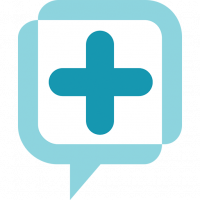Many people believe they are at low-risk for COVID-19, when that may not be the case. They are unaware that an existing condition can put them at higher risk for severe illness and even death. It is more important than ever for people to be aware of their true health status, know what conditions put them at higher risk of COVID-19, and learn what they can do about it. Health care professionals have an important role in informing the public about these important topics.
Age Over 65
Statistics show that people over 65 have the highest rates of severe illness and death from COVID-19. The Center for Disease Control and Prevention states that:
“8 out of 10 deaths reported in the U.S. in people with COVID-19 have been in adults 65 years old and older.”
This is an alarming statistic and is why public health officials are urging everyone in this age group to stay at home and stay away from other people, even if they are feeling well.
Other High-Risk Conditions
There are several common conditions that put people in a higher risk category if they have COVID-19. They include:
- Diabetes
- Heart disease
- Lung disease
- Weakened immune system
Diabetes
Today, there are 29 million people in the United States with diabetes. These people should know they are at greater risk for complications if infected with COVID-19. The larger concern is the 1 in 4 Americans who simply aren’t aware they have diabetes.
According to the American Diabetes Association:
… people with diabetes are more likely to experience severe symptoms and complications when infected with a virus. The problem people with diabetes face is primarily a problem of worse outcomes, not greater chance of contracting the virus. In China, people with diabetes had much higher rates of serious complications and death than people without diabetes.”
That said, now is the time to help your community members understand their risks by encouraging them to complete health risk assessments already in place by your health system and using targeted messages to further educate them.
Heart Disease
Similar to those with diabetes, there are high numbers of Americans with possible heart issues. They are at high-risk for serious outcomes from COVID-19. The American Heart Association states that half of American adults have some type of cardiovascular disease. There is evidence that even some risk factors for heart disease, like high blood pressure, may also increase risk of death in COVID-19.
On March 6, American College of Cardiology (ACC) president Richard J. Kovacs, MC, FACC, issued a clinical guidancee with alarming statistics, including a 10.5% fatality rate for heart disease patients. The (ACC) guidance also states:
“It is reasonable to advise all cardiovascular patients of the potential increased risk and to encourage additional, reasonable precautions in accordance with CDC guidance.”
Again, consumers can only know how best to take preventive measures if they know their risk.
Lung Disease
According to the Center for Disease Control and Prevention (CDC), people with asthma may be at higher risk of getting very sick from COVID-19. COVID-19 can affect the respiratory tract (nose, throat, lungs), cause an asthma attack, and possibly lead to pneumonia and acute respiratory disease. Other lung conditions also decrease lung function and can also cause more serious problems in people with COVID-19.
Weakened Immune System
Your body needs a healthy immune system to recover from COVID-19. There are many conditions that may cause a weakened immune system:
- Chemotherapy or radiation for cancer (currently or in recent past)
- Taking medication that suppresses your immune system
- HIV
- Sickle cell anemia
- Chronic kidney disease requiring dialysis
- Cirrhosis of the liver
- Lack of spleen or a spleen that doesn’t function correctly
People with these conditions need to be sure that they stay at home and stay away from other people, especially if they are sick.
Low-Risk for COVID-19?
Bottom line is this: If people mistakenly believe that they are at low-risk for COVID-19, they may not take the proper precautions to avoid people infected with the virus.
So, what’s to be done? Take this opportunity, while people are sheltering in place and practicing social distancing, to remind consumers how important it is to know their true health status. Encourage them to use the resources you have available to gain that knowledge.
Promoting tools that are already in place, like health risk assessments, can help your community make better decisions about how to stay safe from COVID-19. These tools are no replacement for COVID-19 testing, but they can empower people by helping them understand their actual risk from having underlying health conditions.















 Thank you for your interest.
Thank you for your interest.